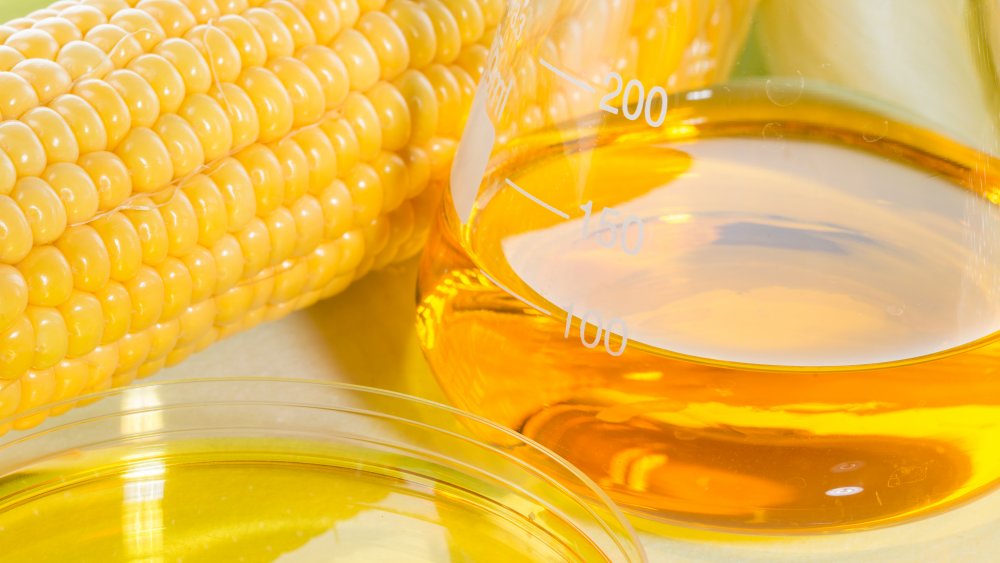The Real Reason You Should Avoid High Fructose Corn Syrup
As modern medical knowledge expands, sugar has been the target of a wealth of misconceptions — and a whole lotta hate. But perhaps no form of the sweet stuff is ostracized as much as high fructose corn syrup (HFCS).
True, its sheer ubiquity in processed foods is staggering. While most consumers pretty much expect its presence in sugary sodas, candy, and ice cream, it also hides out in so-called health foods, like yogurt and granola bars, as well as in innocuous-seeming staples such as salad dressings, breads, and condiments (via Healthline).
HFCS was first unleashed on an unsuspecting public in 1957, and by 2010 comprised "as much as 40 percent of caloric sweetener in the United States," even in foods that previously did not incorporate sweeteners, according to LiveScience. The Corn Refiners Association lures manufacturers by pointing out its low cost as well as "taste, flavor and texture" enhancing attributes, helping create "breads that are more golden-brown," "chewier" breakfast bars, "creamier" yogurts, and "refreshing" beverages.
Obviously, overconsumption of any form of sugar is a bad idea, and Americans are reported to devour more than triple the recommended amount (via UPMC HealthBeat). But critics warn that HFCS has particularly insidious effects on the body.
The health effects of high fructose corn syrup
HFCS (not to be confused with corn syrup) is a chemically-produced product created from cornstarch, often made from genetically modified corn, and treated with enzymes to raise its fructose levels (via Healthline). That extra fructose generates numerous health hazards, since the liver must convert fructose into "glucose, glycogen (stored carbs), or fat by the liver before it can be used as fuel," Healthline explains.
More technically speaking, Mark Hyman, MD, notes that this process enables lipogenesis, or "the production of fats like triglycerides and cholesterol," causing the condition of fatty liver and skyrocketing insulin, which both lead to "increased metabolic disturbances that drive increases in appetite, weight gain, diabetes, heart disease, cancer, dementia, and more." Hyman adds that HFCS saps energy and triggers full-body inflammation, which can also lead to long-term issues like obesity, diabetes, cancer, heart disease, dementia, and accelerated aging.
Hyman explains that HFCS may even contain contaminants, such as mercury, that fly under the FDA's radar, while UPMC HealthBeat warns it can alter mood and increase the risk of cavities. And, of course, HFCS is not only totally devoid of nutrients itself (via Healthline) but also a sure sign of what Hyman calls "poor-quality, nutrient-poor, disease-creating industrial food products or 'food-like substances.'"
Though the FDA claims it's "not aware of any evidence" that HFCS is less safe than other sweeteners, with such a litany of possible ill effects, sounds like this sugar-like substance deserves its spot on health advocates' most-hated list.

